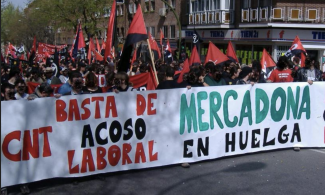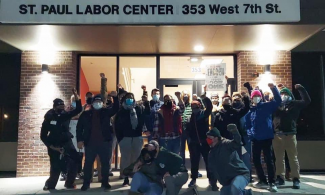
Fighting For Ourselves, by the Solidarity Federation based in the UK, is the most accessible and in-depth look at the ideas of anarcho-syndicalism: The movement for workers to organize within revolutionary unions to bring an end to capitalism and to the state, and bring about a world where workers run our own workplaces, and people run our own communities by balancing autonomy with federated, participatory forms of democracy.
An audio recording of Fighting For Ourselves can be found at the Audible Anarchist podcast, linked here:
Chapter One, the Mainstream Worker's Movement, looks at the unions (this book focuses more on the UK than on the US here) and how they developed, grew, won victories, and in many cases stagnated.
Chapter Two, Currents Within the Workers Movement, looks at how mainstream unions, political parties, and socialist vanguards all try to lead workers' struggles. It puts forward the case for workers leading our own struggles through revolutionary democratic unions.
Chapter Three, Anarcho-Syndicalism in the 20th Century, looks at how the anarcho-syndicalist movement in the early and mid 1900s handled the challenges facing them in different countries such as Argentina, Spain, and Germany.
Chapter Four, Capitalism and Class Struggle Since World War Two, looks at how capitalism has changed since the big strikes of the 1930s and the Second World War in the 40s. It covers an age of high official union membership, but also of labor stagnating, forgetting how to fight, and ultimately being defeated by employer counter-attacks.
Chapter Five, Anarcho-Syndicalism in the 21st Century, covers the crucial work of moving from an idea into a real fighting organization, and puts the kind of work that we do in the Solidarity Network at a central place in that organizing. It sketches out the role that revolutionary unions can play in the struggles to come.




